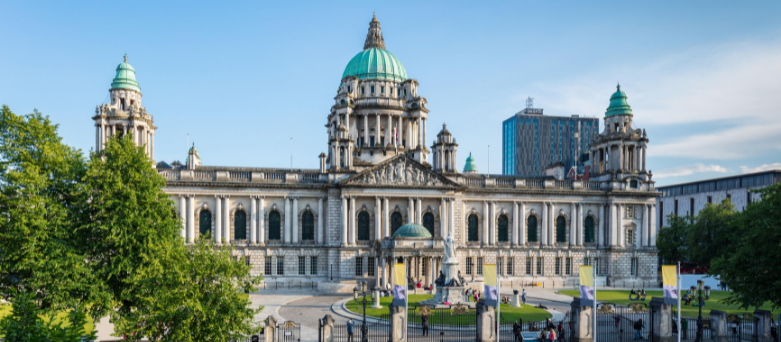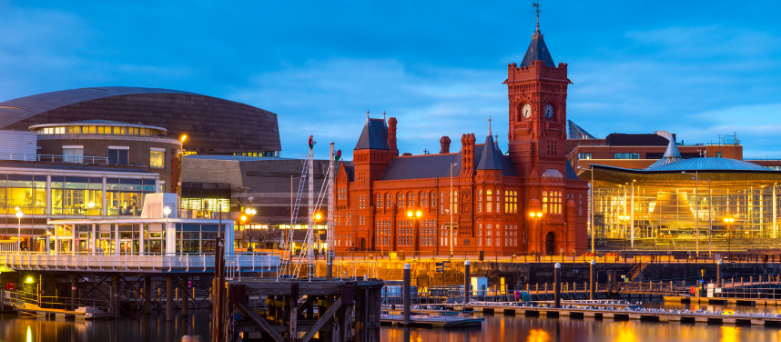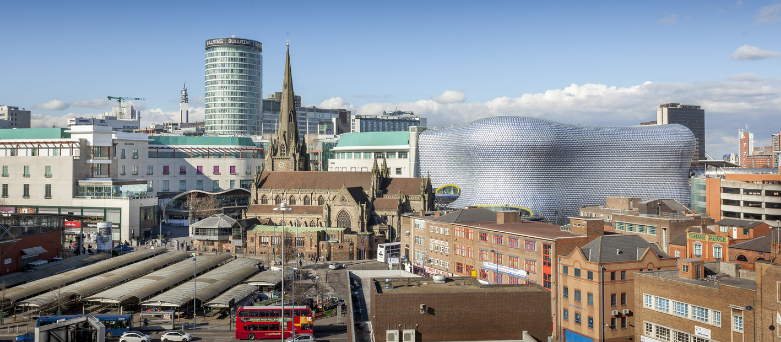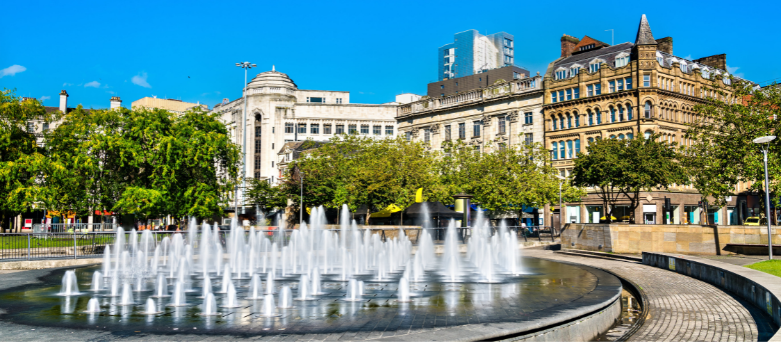London
Home to a population of approximately eight million, London is the capital city of the UK. It is also the country’s largest city and a primary destination for foreign workers.
Located in the south-east of England, the city stands on the River Thames and boasts a plethora of world-famous landmarks, including Big Ben, Buckingham Palace, the London Eye, and the Tower of London. Steeped in history dating back over two millennia, London was founded by the Romans in AD 43 and has provided the backdrop for countless historic events, including the tyrannical reign of Henry VIII, Guy Fawkes’ Gunpowder Plot, and the crimes of the mysterious Jack the Ripper. Of course, these days London is a very different place.
While the city remains at the heart of the UK in an economic and political sense, the area has blossomed into a multicultural melting pot and is home to people from all walks of life. As one of the most popular travel destinations in Europe, London offers Michelin-starred dining, electrifying entertainment, and truly vibrant nightlife, not to mention first-class transport links.
The famous London Underground and iconic red buses give you 24hour access to transport around the city, while St Pancras International railway station and six airports - including Heathrow, Gatwick, and Stansted - ensure smooth transitions both in and out of the UK. London is not the cheapest place to live in the UK.
The average monthly rent ranging from £1,225 to £3,000 with council tax massively varying depending on the borough you live in. Many people often choose to flat share, which can vastly reduce monthly living costs. Despite the higher cost of living, London remains one of the most desirable places to live and work.

Edinburgh
Edinburgh is the capital of Scotland and one of the UK’s most historic cities. Home to an estimated population of 489,000, Edinburgh welcomes around 13 million tourists every year and boasts a number of fascinating attractions including Edinburgh Castle and the Palace of Holyrood house, the official Scottish residence of the British monarch.
There are two parts to the city; the Old Town, notable for its medieval roots and the elegant Georgian New Town, which combined are listed as a UNESCO World Heritage site. As a whole, the city is home to more listed buildings than anywhere else in the world.
Edinburgh is also renowned for its modern pleasures. Princes Street offers an array of shops stocking world-famous brands, while nearby restaurants and bars are famed for their high-quality cuisine and lively nightlife.
Wherever you live in the city, getting around will be simple, even if you don’t drive as public transport in Edinburgh is extensive and reliable. Bus services operate 24 hours, whilst Edinburgh trams operate across 15 stops, connecting the Airport with the New Town.
The cost of living has slowly risen over the last few years, but Edinburgh still remains an affordable place to live. The average monthly rent ranges between £598 to £1,379, with council tax costing anything between £95 and £334 per month.

Belfast
Standing on the banks of the River Lagan, Belfast is the capital of Northern Ireland and an area that possesses a rich and complex history. The city’s streets are full of well-preserved architecture, while the stunning murals that remain on the side of some buildings act as a window into the region’s troubled past.
The city’s maritime heritage still remains clear for all to see. The Titanic Belfast, a stunningly designed museum built on the site of the Harland and Wolff shipyard, the birthplace of the doomed Titanic liner, dominates the skyline. An array of bars and restaurants are also widely available, while traditional music can often be heard throughout the night air. The city is also home to the world's largest dry dock and over3,000 acres of parkland.
Belfast is a thriving capital city, but it’s far from expensive. In 2012, Belfast was named the cheapest city to live and work in the UK. An average 1-bedroom flat outside of the city centre costs on average £447 a month to rent, whilst a family-sized 3-bedroom property in the wealthiest areas costs up to £1,000.Northern Ireland does have a council tax system; instead, there is a rate-based system, where you pay a certain amount based on the market or rent value of your home.

Cardiff
Located on the south coast of Wales, Cardiff is built on the River Taff and extends around the Severn Estuary. A two-hour drive from London, the Welsh capital is one of the flattest cities in the UK and famed for its unique blend of innovative architecture and historic buildings.
The city offers plenty of attractions including Cardiff Castle, Bute Park and Cardiff Bay. Cardiff is also an ideal destination for sports enthusiasts, with international football and rugby fixtures held regularly, while other activities such as ice hockey, cricket and basketball are widely accessible to view or to play.
The city caters to cultured tastes too, with St David's Hall staging a diverse programme of performing arts and the Motorpoint Arena, which regularly plays host to a wide variety of concerts, conferences, and exhibitions.
Cardiff is amongst the most affordable in the UK. An average 1-bedroom apartment outside of town should set you back an average of £547 a month, whilst a fancier 3-bedroom apartment in the city centre can cost up to £1,172.
Like most areas in the UK, council tax in Cardiff depends on which area you live in, and the price of the property you rent or buy. The cheapest tax band starts at £823.89 and rises to £3,536.97 for the most expensive properties.

Birmingham
Deep in England’s West Midlands region is Birmingham, a city that is geographically central within the UK. This bustling metropolis is the country’s second-largest city after London and famed for its rich culture, outstanding attractions and fine dining. Roughly 90 per cent of the UK is within a four-hour drive of Birmingham.
Once labelled ‘the city of a thousand trades’, Birmingham is now one of the greenest cities in the UK, packed with parks and open spaces and miles of waterways. In fact, the canals of Birmingham stretch for around 35 miles, roughly nine miles further than those of Venice. The city is also the birthplace of Cadbury chocolate and home to Cadbury World, a must-see attraction for all chocolate lovers.
An hour from London by train, the city is within reach of some of the UK’s top beauty spots such as Snowdonia and the Brecon Beacons to the west, the Peak District national park to the north, and the Cotswolds to the south. The area also includes historic towns such as Warwick, famous for its castle, and Stratford-Upon-Avon, the birthplace of William Shakespeare.
Birmingham’s public transport system is one of the least congested and greenest in the UK. The city’s efficient bus network provides cheap and regular services all across the West Midlands, with a one-way ticket costing as little as £2.50.
Despite being the largest and most populous British city outside of London, Birmingham is an affordable place to live. An average 1-bedroom apartment just outside of Birmingham city centre costs around £534.26 per month, while a high-end 3-bedroom city centre apartment costs £1,409.52 and the cheapest council tax band is £1,062.67 while the most expensive is £3,188.

Manchester
Situated in the north-west of England, Manchester is rich in industrial heritage and brimming with character. The city is home to over 530,000 residents, making it the sixth-largest city in the UK, and has a proud and illustrious history in the fields of politics, science, music and art. Sport also plays a major part in Manchester's culture with the city home to two Premier League football clubs - Manchester City and Manchester United - as well as the National Football Museum.
The city is one of ten metropolitan boroughs that make up Greater Manchester, an area that includes the revitalised city of Salford and larger towns such as Bolton, Oldham, and Wigan. Greater Manchester boasts world-class sporting facilities, vibrant music and arts scene, lively nightlife, and restaurants serving food from every corner of the globe.
Despite being a city of international renown, Manchester is a relatively affordable city to live and work. An average 1-bedroom apartment just outside of Manchester city centre costs around £560 per month, while a 3-bedroom city centre apartment will set you back £1,340.The cheapest council tax band is £1097.34 while the most luxurious properties fetch £3292.04.





